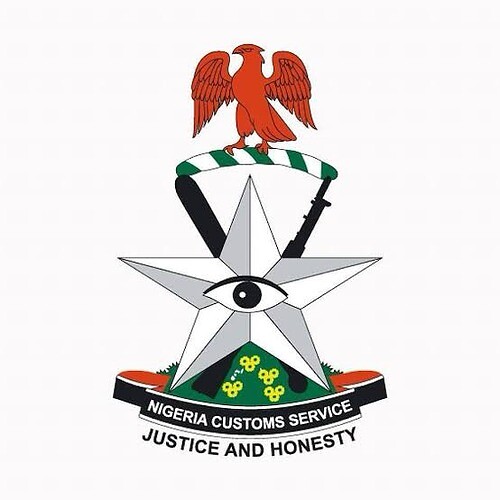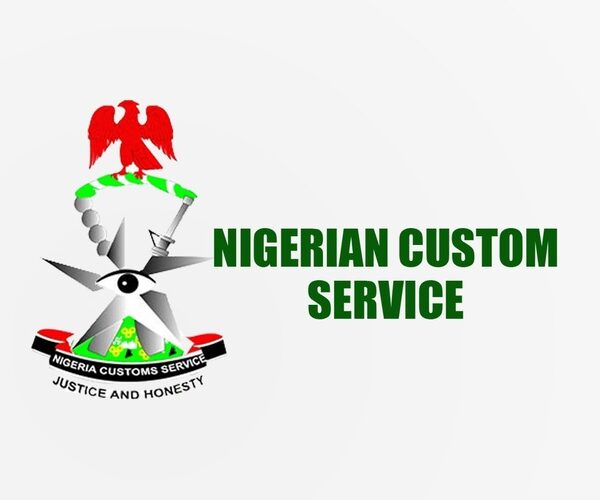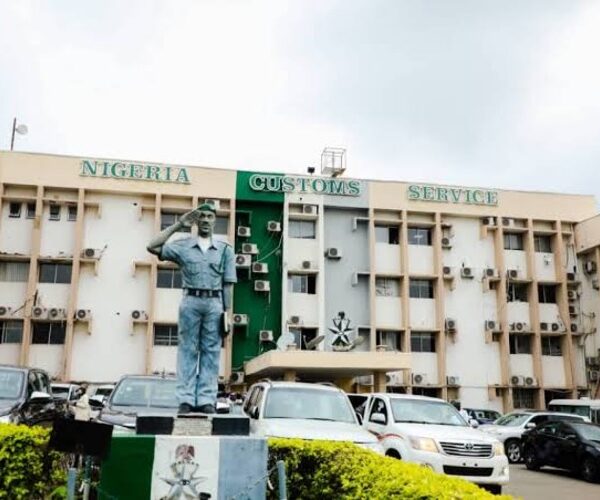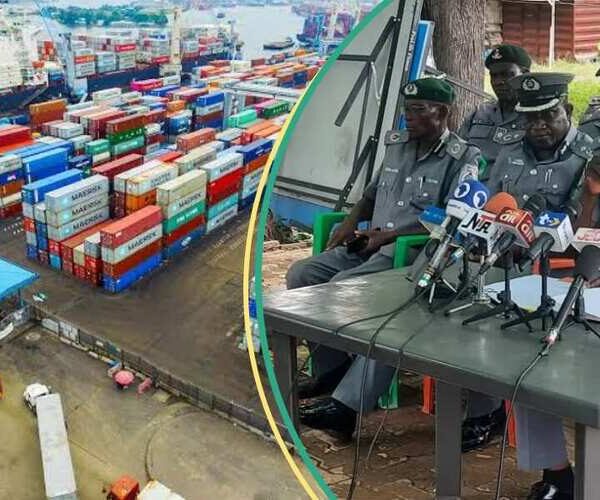- Government Organisation
- zone+3, 4 Abijan St, Zone 3, Abuja 904101, Federal Capital Territory, Nigeria

NIGERIAN CUSTOMS SERVICE (NCS)
Welcome
Welcome to the Nigeria Customs Service. We sincerely hope that the global trading community, travelers and other stakeholders will find the information provided through this medium useful and timely.
The Nigerian Customs Service (NCS) serves as the gatekeeper of Nigeria’s borders, playing a crucial role in facilitating international trade, ensuring revenue collection, and maintaining national security. Established in 1891, the NCS has evolved into a dynamic and multifaceted organization responsible for enforcing customs and excise laws, as well as implementing government policies on trade and border control.
The history of the Nigerian Customs Service (NCS) is deeply intertwined with the evolution of trade, governance, and security in Nigeria. Established during the colonial era, the NCS has undergone significant transformations over the years, adapting to changing economic landscapes, geopolitical dynamics, and technological advancements.

Colonial Origins
The roots of the Nigerian Customs Service can be traced back to the late 19th century when Nigeria was under British colonial rule. With the establishment of colonial administrations and the expansion of trade networks, there arose a need for effective customs and excise management to regulate commerce and generate revenue.
In 1891, the British colonial authorities formally established the Customs and Excise Department in Lagos, which served as the administrative and economic hub of Nigeria at the time. The primary responsibility of the department was to enforce customs laws, collect duties and taxes on imported goods, and regulate trade activities along Nigeria’s coastline.
Post-Independence Era
Following Nigeria’s independence in 1960, the Nigerian Customs and Excise Department underwent significant reforms to align with the country’s emerging status as a sovereign nation. The department was restructured and reorganized to meet the challenges of a rapidly growing economy, expanding trade volumes, and evolving international trade dynamics.
Throughout the post-independence era, the NCS played a crucial role in facilitating trade, ensuring revenue collection, and maintaining border security. The service implemented modern customs procedures, adopted international best practices, and forged partnerships with other customs administrations and international organizations to enhance its operational capabilities.
Customs Enforcement and Revenue Collection
At its core, the primary mandate of the NCS is to enforce customs and excise laws to ensure compliance with trade regulations and revenue collection. Through its extensive network of ports, airports, and land border stations, the NCS monitors the movement of goods and commodities entering and exiting the country.
One of the key functions of the NCS is to assess and collect duties, taxes, and levies on imported goods. By implementing transparent and efficient customs procedures, the service aims to facilitate legitimate trade while deterring smuggling, tax evasion, and illicit activities.
Trade Facilitation and Compliance
In addition to revenue collection, the NCS plays a vital role in facilitating international trade and promoting compliance with trade regulations. Through initiatives such as the Nigeria Customs Electronic System for Trade (Nigeria Customs e-SWIFT), the service has modernized its operations, streamlined clearance processes, and enhanced transparency and accountability.
Moreover, the NCS collaborates with other government agencies and international organizations to harmonize trade procedures, reduce trade barriers, and promote trade facilitation. By embracing technology and best practices, the service seeks to create a conducive business environment that attracts investment, fosters economic growth, and enhances Nigeria’s competitiveness in the global market.
Border Security and Anti-Smuggling Operations
Ensuring national security and combating smuggling are integral aspects of the NCS’s mandate. Border security operations are conducted in collaboration with other law enforcement agencies to prevent the illegal movement of goods, contraband, and prohibited items across Nigeria’s borders.
The NCS employs a multi-layered approach to border security, utilizing technology, intelligence gathering, and personnel training to detect and intercept illicit activities.
By strengthening border surveillance and enforcement efforts, the service contributes to safeguarding Nigeria’s territorial integrity, protecting local industries, and preserving public health and safety.
Dynamics of Technology have changed the conduct and scope of international trade. As a critical actor in the unfolding development, Customs can not afford to be indifferent.
Information dissemination about customs operations is therefore considered very vital to trade facilitation in a world that is becoming increasingly technologically–-driven.
As products of the Government Reforms Programme, we have accepted the onerous challenge of responsive and efficient service delivery in a transparent environment. To achieve this, we have in place a management team that is focused and determined to lead Customs into a new dawn.
We hope that all our stakeholders will find this website a useful guide and reference.
FUNCTIONS
Core Functions
Collection of Revenue i.e. Import and Excise Duties and Accounting for the same Prevention and suppression of smuggling
Other Functions
- Implementation of Government Fiscal Measures
- Generation of statistical data for planning purposes
- Trade Facilitation
- Implementation of bilateral and multilateral agreements entered into by the government
- Collection of levies and charges
- Collaborative functions with Government Agencies including CBN, Police, NDLEA, SON, NAFDAC, FIRS, etc.
- The Service also supports the combating of Illegal commercial activities and trade in illicit goods, e.g. import of fake and sub-standard goods
- Infraction on Intellectual Property Rights
- Illegal international trade in endangered species
- Illegal trade in arms and ammunition
- Money laundering
- Traffic of illicit drugs
- Illegal trade in cultural Artifacts
- Importation of pornographic materials
- Importation of toxic and hazardous substances
Our Mission
Nigeria Customs Service is a reference and model administration with excellence in providing effective and efficient service to accomplish all dimensions of its mission.
That service is a modern, compact, and dynamic Service that influences policy and contributes to Nigeria development.
That the Service is recognized as being in the vanguard of Customs best practices and international standards.
Our Vision
- To excel in the efficient and timely collection of and accounting for revenue.
- Implementation of and advise on Governmental trade and fiscal policies.
- Promotion of trade facilitation
- Protection of Nigerian society, generation of accurate and precise statistical data by developing a professional, transparent administration that implements international best practices and obligations.
Mission and Vision Statements
- Application of Risk Management System
- Electronic declarations and payment
- Access to information portal and single electronic point (NCS) Website
- Real-time account and actual revenue collected
- Adherence and strict implementation of three Customs procedures(classification, valuation and origin)essential to revenue collection
- Implementation of Agreement on Customs Valuation (ACV)
- Collaboration with World Customs Organization, Business and stakeholders
- Exchange of information and intelligence
- International best practices
- Areas Requiring Immediate Government Intervention
- Effective take-over of all Customs import and export clearance functions
- Legislative reform to provide a basis for the application of modern Customs Procedures
- Improved capacity building-completion of the construction of Customs Staff College
- Streamlining of procedure with other Government Agencies
- Review of current penalty regime lacking effective deterrents against violations of Customs Laws
- Better funding for infrastructures as applied to modern procedure
- Simplification and harmonization of Customs procedures
- Reduction of items on the prohibition list
- Just-in-time delivery of goods and services by removal of non-tariff barriers
- Promotion of transparent and predictable business environment.
Areas Of Strength
The NCS today has a workforce with a professional service culture exemplified by the following:
Corps of trained Customs professionals
Challenges and Reforms
Over the years, the NCS has faced various challenges, including corruption, inadequate infrastructure, and the proliferation of smuggling and illicit trade activities. These challenges have posed significant threats to Nigeria’s economic development, security, and international reputation.
In response, successive administrations in Nigeria have initiated reforms aimed at modernizing the customs service, enhancing transparency and accountability, and strengthening border security measures. The introduction of technology-driven solutions, such as the Nigeria Customs Electronic System for Trade (Nigeria Customs e-SWIFT), has helped streamline customs procedures, reduce trade barriers, and improve efficiency in trade facilitation.
Furthermore, the NCS has intensified its efforts to combat smuggling, illicit trafficking, and other forms of transnational crime through enhanced intelligence gathering, inter-agency collaboration, and capacity-building initiatives.
Looking Ahead
As Nigeria continues to assert its position as a major player in regional and global trade, the Nigerian Customs Service remains a critical component of the country’s trade and border management infrastructure.
With a renewed focus on transparency, efficiency, and security, the NCS is poised to meet the challenges of the 21st century and contribute to Nigeria’s economic growth, prosperity, and integration into the global economy.
Business Amenities
- Car Parking
- Funding: Federal
Contact Information
Opening Hours
Contact Business
Contact Business
Additional Information
Additional info

Subscribe now to get direct updates
Join Naijadirectory Newsletter













